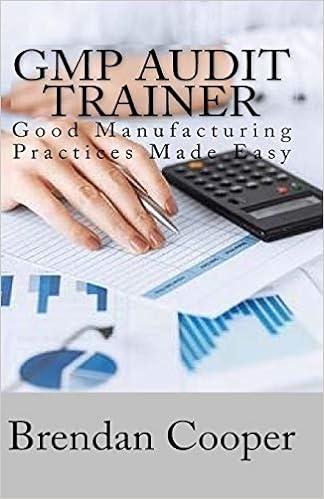Question
Rose Merchandising Company buys and sells a product called Zoom. Company began the 2018 accounting year on Jan. 1st with the following balances. Debit Cash
Rose Merchandising Company buys and sells a product called Zoom. Company began the 2018 accounting year on Jan. 1st with the following balances. Debit Cash 41,000 Accounts Receivable 20,000 Merchandise Inventory 22,000 Supplies 1,440 Prepaid Insurance 2,000 Equipment 236,200
Credit: Accumulated Depreciation-equipment 40,240 Accounts Payable 7,000 Common Stock, $10 par 265,000 Retained Earnings 10,400 Total 322,640 322,640
On Jan. 1st, 2018, Merchandise Inventory consisted of 200 units of product Zoom each had cost $110. Company uses Perpetual Inventory System with LIFO method for inventory valuation. The following transactions took place in January of 2018.
1. In order to raise capital, issued and sold 5000 shares of $12 par value, 10%, preferred stocks.
2. Purchased 400 units of Zoom at a cost of $151.17 each from the Lyons Company, terms 2/10, n/30, with FOB Shipping point term plus sales taxes of 8% that were not included in the purchase price.
3. Shipping and handling cost was $158.
4. Returned 5 defective units of Zoom to the Lyons Company.
5. Paid Lyons Company the amount owed within discount period.
6. Sold 300 Zoom to Team America for a price of $510 each, terms were 2/10, n/30, FOB Shipping point. Applicable sales tax rate was 8%.
7. Borrowed $80,000 at 4%. Interest is expected to be paid monthly.
8. Paid $500 for the shipment of the merchandise to Team America.
9. Team America returned 10 units of Zooms.
10. Sold 100 units of Zoom for a price of 50,000 yen each to a Japanese company on account. Shipping term was FOB Shipping point on a Cash On Delivery basis. On the transaction date the exchange rate was $0.01 per yen. Sales taxes was not applicable.
11. Collected $1000 interest from bank on its saving account in cash
12. Team America paid the amount owed within discount period.
13. Collected from Japanese company for sales made in the above. On collection date the exchange rate was $0.008 per yen.
14. Invested $40,000 in marketable securities - $25000 for short-term purpose (also called trading securities) and $15,000 for long-term purpose (also called available-for-sale securities).
15. Collected $7,000 on accounts receivable. It was not within discount period.
16. Purchased a delivery truck (equipment) at a $30,000. Paid $5,000 in cash and signed a note for the remaining at 6% to be paid in 36 equal monthly payments.
17. Recorded $10,000 hurricane losses on equipment. The loss met extra ordinary requirements.
18. Closed its Mexico branch by selling the branch equipment that had cost $100,000 with accumulated depreciation of $20,000 for $88,000 in cash.
19. Paid $1,400 for utilities expense.
20. Paid salaries, $20,000. Applicable tax rates were as follows: FICA Taxes 7.65% Federal Income Taxes 18.00% State Income Taxes 6.00% Federal Unemployment Taxes 0.80% State Unemployment Taxes
21. Some equipment that was purchased at $5,000 was disposed for $3500 cash.
22. Declared and paid $10,000 cash dividends.
23. Made the 1st interest payment on loan to the bank.
24. Collected $500 dividends from its investment in marketable securities.
25. Detected $5,000 understatement of depreciation charges in prior period and made the necessary adjusting entry. Applicable income tax rate for last year was 30%.
26. A physical inventory count indicated that $240 supplies were let.
27. Recorded depreciation on the month, $5,000.
28. The expired insurance was $1,000.
29. Made the necessary journal entries to reflect the fair market value of investment in marketable securities. The fair value of company investment in marketable securities as of Dec.31st was as follows. Cost Fair Value Investment in Marketable Securities (short-term) $25,000 $30,000 Investment in Marketable Securities (long-term) $15,000 $17,500
30. Paid all sales taxes owed and related payroll taxes to government.
31. Paid $3,000 for income taxes.
Prepare general purpose financial statements Income Statement (multiple step) with proper reporting of EPS Comprehensive Income Statement Statement of Retained Earnings Statement of Stockholders Equity Balance Sheet (classified) Statement of Cash Flows, and Perform closing entries.
Step by Step Solution
There are 3 Steps involved in it
Step: 1

Get Instant Access to Expert-Tailored Solutions
See step-by-step solutions with expert insights and AI powered tools for academic success
Step: 2

Step: 3

Ace Your Homework with AI
Get the answers you need in no time with our AI-driven, step-by-step assistance
Get Started


